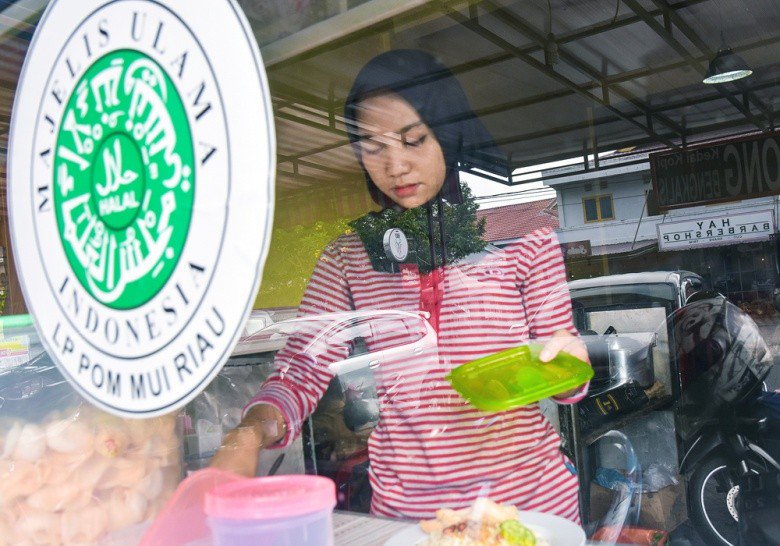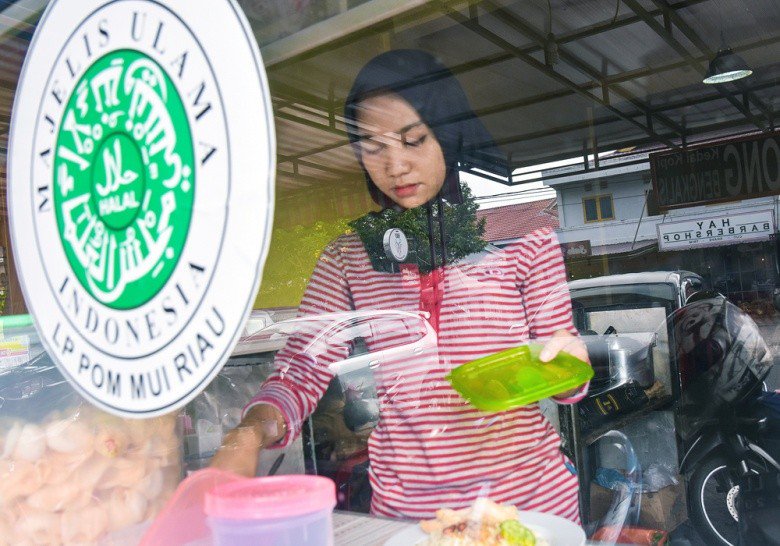Popular Reads
Top Results
Can't find what you're looking for?
View all search resultsPopular Reads
Top Results
Can't find what you're looking for?
View all search resultsHarmonizing halal standards
A study on current halal standards shows an increasing awareness in countries and organizations globally about establishing their own halal standards. However, this trend is of a grave concern for halal industry players, especially practitioners, stakeholders, sharia advisors in general and Muslim customers in particular.
Change text size
Gift Premium Articles
to Anyone
 A study on current halal standards shows an increasing awareness in countries and organizations globally about establishing their own halal standards. However, this trend is of a grave concern for halal industry players, especially practitioners, stakeholders, sharia advisors in general and Muslim customers in particular. (Antara/FB Anggoro)
A study on current halal standards shows an increasing awareness in countries and organizations globally about establishing their own halal standards. However, this trend is of a grave concern for halal industry players, especially practitioners, stakeholders, sharia advisors in general and Muslim customers in particular. (Antara/FB Anggoro)
T
he Muslim population reached 1.83 billion out of the world’s 6.5 billion people in 2018, with an average annual birth growth rate of about 1.80 percent. Undoubtedly, the halal food trade is growing fast at 20 percent annually.
The value of the global halal product market is estimated at US$4.55 trillion, excluding Islamic banking, with food and beverages accounting for 67 percent, pharmaceuticals 22 percent and personal care and cosmetics 10 percent. However, the lucrative market of the halal industry is also facing a huge challenge, as various halal standards are being implemented globally.
A study on current halal standards shows an increasing awareness in countries and organizations globally about establishing their own halal standards. As such, it is not surprising to find within a country more than one halal certification body and more than one set of halal standards.
However, this trend is of a grave concern for halal industry players, especially practitioners, stakeholders, sharia advisors in general and Muslim customers in particular.
In some Muslim majority countries like Malaysia and Indonesia, the halal standards are established and set by the standard bodies in the respective countries. These halal standards are then implemented by the certification bodies. Some countries share standards. The halal standards by the Standards and Metrology Institute for the Islamic Countries (SMIIC) of the Organization of Islamic Cooperation are adopted by many countries.
In certain non-Muslim majority countries, halal standards are not established by any regulating bodies. This is due to the fact that most governments of those countries are ignorant or oblivious to issues related to the halal industry. Instead of establishing new halal standards and implementing these standards through local certification bodies, some prefer to adopt the halal standards certified internationally by other countries such as Malaysia or Indonesia or the SMIIC.
In the worst-case scenario, some countries do not have official halal standards at all. In countries that are oblivious to halal issues relevant to the minority Muslim population, the governments do not condone the adoption of the standard operating procedure for implementing halal certification and halal auditing. This practice negates the spirit and virtues of sharia without clear and defined halal standards that are binding to the whole nation, especially the Muslim community at large.
Your Opinion Matters
Share your experiences, suggestions, and any issues you've encountered on The Jakarta Post. We're here to listen.
Thank you
Thank you for sharing your thoughts. We appreciate your feedback.

















